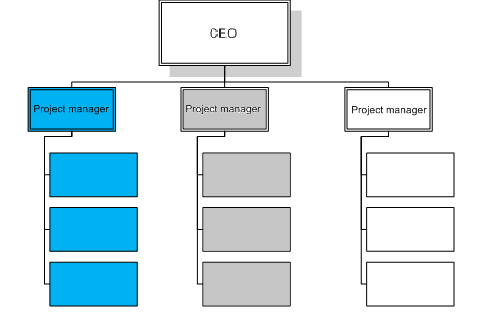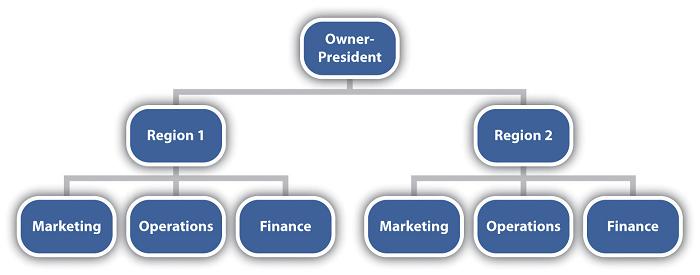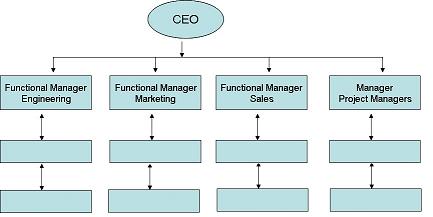A business organization can be formed with certain properties and specific characteristics. Since business organization is an association of persons, the manner of forming and the objectives of the association decide the form of organization. Individuals form an organization because they are unable to achieve their goals individually. An organization provides opportunities to exploit the existing potential of men and materials. It explores the future possibilities of exploiting human and physical resources. Individuals interested in getting benefits out of the present and potential resources form an association, better known as an organization, to attain the group goals. The dynamics of individuals and the organization are used to gain maximum benefits.… Read the rest
Principles of Management
Project Organization Structure
Project organization structure is used to complete a project or task. The project manager has people from several functional departments such as production, finance, marketing and so on. Specialists are drawn to perform their respective roles in the total project. The project organization structure is derived not from some principles but from the job requirements. Project organization structure brings together people of different expertise for the completion of the project. As soon as the project is completed, the experts are returned to their original departments in the head office. For example, in a bridge construction project, the engineers, financial manager, human resources people and other related people are brought to the sit of the project where project organization, the structure and process, is developed. … Read the rest
Geographical Organizational Structure
Geographical organizational structure involves grouping of the activities according to regional or geographical locations. The territorial divisions become a complete administrative unit to cater to the need of the localities. The Regional Manager will practically be the chief controller of his region. He is given full powers of managing his own region or zone. His office functions as a head office for all practical purposes. The functions pertaining to finance, marketing, personnel and production development of low-level employees are completely vested in the zonal office which has separate departments of these functions to guide and control the respective activities of the zone. … Read the rest
Functional Organization
Functional organization is technically called functional foreman-ship because the function itself becomes a supervisor and the employees automatically perform their respective duties. The emphasis of functional organization structure is on operations rather than on management. Functional organization is commonly used in business organizations. The spirit of organization, which involves grouping tasks together and allocating them to genuine employees is observed in functional organization.
Functional sets like marketing, finance, production and personal are grouped systematically. Departments and sub departments are developed according to the requirements of the business. Functional organization is the basic building block or module from which other forms of organization are built.… Read the rest
Features of Business Organizations
An organization is the association of persons for achieving certain objectives. An organization is a social system wherein its members try to achieve their private goals while achieving the organizational goals. The seemingly contradictory goals are resolved by effective organizational behavior. The organization has some objectives which are attained by organizing the activities of their member. An organization for business purposes is commonly known as a corporate body or a corporation or a company or formally established business unit. It is dynamic and ever changing as per the needs of society, its members, corporate objectives and environmental changes.… Read the rest
Theories of Learning
Learning is an important psychological process that-determines human behavior. Learning can be defined as “relatively permanent change in behavior that occurs as a result of experience or reinforced practice”.
Important theories of learning are:
1. Classical ConditioningThe work of the famous Russian physiologist Ivan Pavlov demonstrated the classical conditioning process. When Pavlov presented a piece of meat to the dog in the experiment, Pavlov noticed a great deal of salivation. He termed the food an unconditioned stimulus and the salivation an unconditioned response. When the dog saw the meat, it salivated. On the other hand, when Pavlov merely rang a bell, the dog did not salivate.… Read the rest



